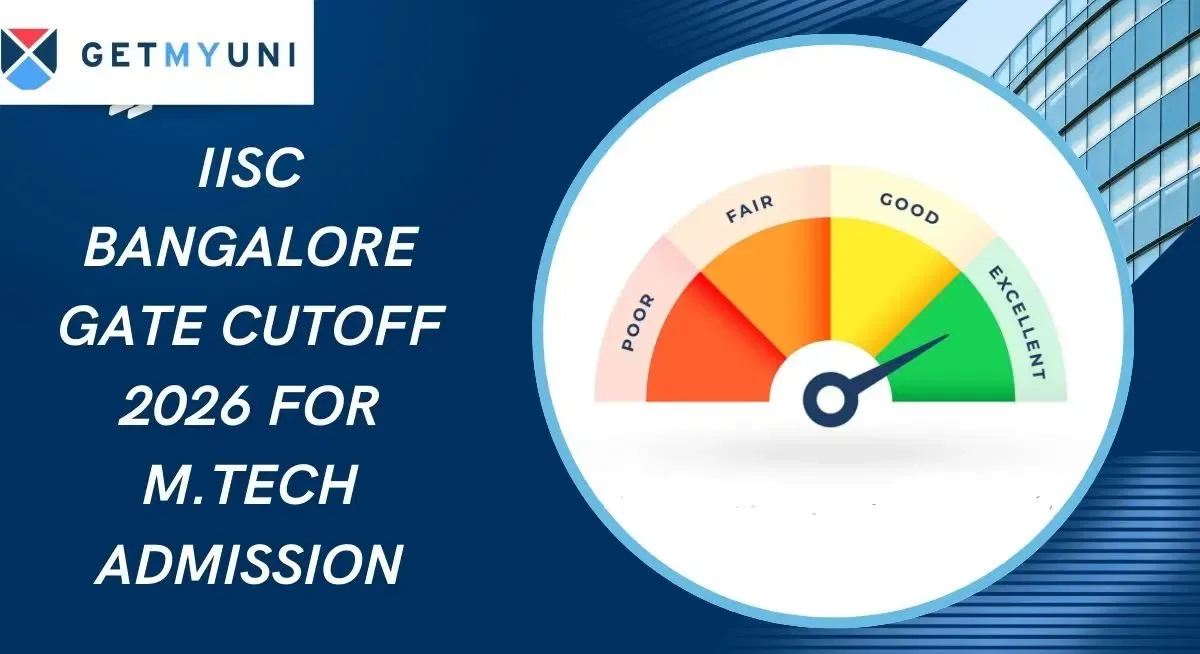The core branches of engineering are mechanical engineering, civil engineering, electrical engineering, chemical engineering and computer science engineering.
The core branches of engineering include civil engineering, mechanical engineering, electrical engineering, electronics engineering, chemical engineering and computer science engineering. Engineering can be said to be a very broad field as it has a number of core branches of specialisation, the oldest among them are mechanical, civil, electrical, and chemical engineering.
There are a number of engineering entrance examinations held across the country such as JEE Main, AP EAMCET, KCET, JEE Advanced etc. It is on the basis of a candidate's score in an entrance examination, that he is allotted a branch of engineering. This article discusses the core branches of engineering. Students looking forward to a career in engineering will find this helpful.
Core Branches of Engineering
Knowing the core branches of engineering is important before preparing for the engineering entrance examinations. The core branches of engineering have been mentioned below.
1. Mechanical Engineering
This branch of engineering can be said to be among the oldest of branches of engineering and is one of the core branches. Mechanical engineering deals with the concepts of physics, analysis, design as well as manufacture of machines. The topics under this branch of engineering are kinetics, material science and thermodynamics.
Courses in Mechanical Engineering: The top mechanical engineering courses are:
- Industrial Engineering and Operation Research
- Dynamics of Mechanism & Machines
- Machine Design
- Fluid Mechanics
- IC Engines
- Turbomachinery
- Refrigeration and Cooling
- Material Science
- Manufacturing Technology
- Heat and Mass Transfer
Top Colleges: IIT Kharagpur, IIT New Delhi, IIT Mumbai, IIT Kanpur, BITS Pilani, NIT Trichy
Eligibility Criteria: Must pass the 12th board examination with Physics, Chemistry and Maths with at least 50% marks.
Also Check: Mechanical Engineering Courses After 12th: Eligibility, Admission, Fees,Colleges
2. Electrical Engineering
Electrical engineering is one of the core branches of engineering. This branch of engineering deals with development as well as maintenance of all the electrical systems and electromagnetics. Electrical engineering chiefly studies the mechanism and applications of semiconductors, microcontrollers and microprocessors.
Courses in Electrical Engineering: The top electrical engineering courses are:
- Power Systems
- Power Generations
- Electrical Machines
- Semiconductor Devices Technology
- Microprocessor and Microcontroller
- Signal Systems and Networks
- Fibre-optics
- DC Machines
- Transformers
Top Colleges: IIT Kharagpur, IIT New Delhi, IIT Mumbai, IIT Kanpur, BITS Pilani, NIT Trichy
Eligibility Criteria: Must pass the 12th board examination with Physics, Chemistry and Maths with at least 50% marks.
Also Check: Electrical Engineering Vs Electronics and Communication Engineering: Which One to Choose?
3. Civil Engineering
This is one of the core branches of engineering that primarily deals with the design, construction, and maintenance of public and private buildings, roads, dams, canals, airports, and other structures. The natural structures are also maintained by the civil engineers. The work of a civil engineer is to ensure that construction is strong and durable.
Courses in Civil Engineering: The top civil engineering courses are:
- Hydraulics
- Elements of Surveying
- Structural Analysis
- Transport Engineering
- Solid Mechanics
- Design of RC structures
- Transportation Engineering
- Water and Waste management
Top Colleges: IIT Kharagpur, IIT New Delhi, IIT Mumbai, IIT Kanpur, BITS Pilani, NIT Trichy
Eligibility Criteria: Must pass the 12th board examination with Physics, Chemistry and Maths with at least 50% marks.
Also Check: Civil Engineering vs Mechanical Engineering - Which Has a Better Scope?
4. Chemical Engineering
Chemical engineering is an engineering branch dealing with the design and working of chemical plants. The study also involves the research on the improvement of production. The chemical engineers mostly deal in conversion of raw materials to products. This involves various chemical processes and analysis based on that.
Courses in Chemical Engineering: The top chemical engineering courses are:
- Materials Science
- Paper
- Agriculture
- Biomolecular
- Thermodynamics
- Molecular
- Organic Chemistry
- Fluid Dynamics
Top Colleges: IIT Kharagpur, IIT New Delhi, IIT Mumbai, IIT Kanpur, BITS Pilani, NIT Trichy, IIT Chennai
Eligibility Criteria: Must pass the 12th board examination with Physics, Chemistry and Maths with at least 50% marks.
Also Check: Chemical Engineering Courses after 12th
5. Computer Science Engineering
Computer science engineering is a branch of engineering deals with the programming and development of software. This is one of the core branches of engineering. For a candidate who is interested in computer science engineering, it is crucial to have a very strong knowledge about software and hardware. A large part of computer science engineering involves mathematics.
Courses in Computer Science Engineering: The top computer science engineering courses are:
- Data Structure & Algorithms
- Computer Architecture
- Design and Analysis of Algorithms
- Computer Networks
- Computer Networks
- Artificial Intelligence
- Operating Systems
- Logic Design
- Database Systems
- Compiler Design
Top Colleges: IIT Kharagpur, IIT New Delhi, IIT Mumbai, IIT Kanpur, BITS Pilani, NIT Trichy
Eligibility Criteria: Must pass the 12th board examination with Physics, Chemistry and Maths with at least 50% marks.
Also Check: Computer Science Vs Computer Engineering: What’s The Difference?
How to Prepare for Engineering Entrance Examination?
Engineering is one of the most sought after careers till today. The profession is both lucrative and prestigious. Enrolling in an engineering course requires the candidates to crack the entrance examinations. Mentioned below are a few tips to prepare for the entrance exams for engineering:
1. Time Management: This is one of the most crucial aspects of preparation for the entrance examinations for engineering. Time management is important in the examination hall as well so that no questions have to be left out.
2. Practising Test Papers: It is important to practise group tudy the test papers from the previous years. Solving model questions will help the candidates gain confidence and perform better.
3. Group Study: Studying in groups has always had advantages. Not only the notes can be shared but the students can help each other out with the concepts too.
4. Take Mock Tests: This is very important. In order to be acquainted with the question paper pattern and also to learn time management skills, the students must take the mock tests. These mock tests contain question papers of the same standard of entrance examinations. Therefore, taking mock tests will help the students perform better in the examination hall.
Also Check: Top 10 Innovative Careers In Engineering 2023























POST YOUR COMMENT